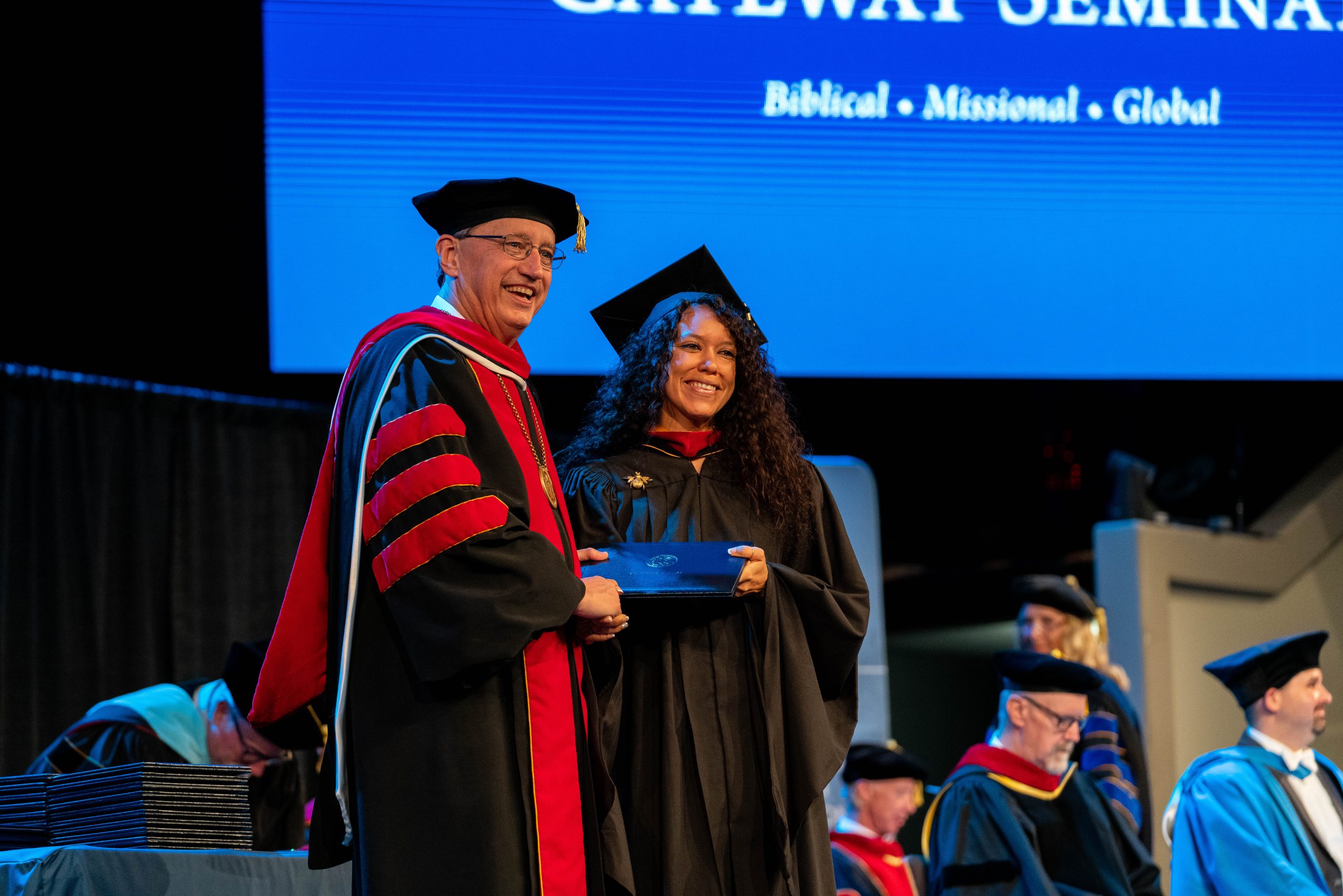As I prepared to leave for seminary, a concerned, callous-handed deacon called me aside for a private word. He said, “I know you’re going to seminary and it might do you some good. But, just don’t let’em ruin you.” What he meant was, don’t let a seminary education quench your compassion for people and don’t let intellectual pursuits cloud your ability to communicate a simple, straightforward gospel.
We have just finished minting 239 Gateway graduates for this academic year. We have done our best to shape them as effective leaders—and not ruin them along the way!
Sadly, these types of warnings are based on the experiences of some church members—particularly blue-collar working men and women—who have watched young ministers become better-educated and simultaneously less-connected to rank-and-file folks and their challenges and concerns. They have watched these young ministers confuse spiritual preparation with academic achievements, mistakenly believing gospel-ministry is more head-to-head than heart-to-heart.
A few weeks ago, I introduced you to The Autobiography of Peter Cartwright, a memoir of a circuit riding Methodist preacher from the early 1800’s. One passage from his book struck me as offering similar advice—about 200 years ago—as my deacon friend gave me about the dangers of a seminary education and other modern ministry conveniences. Cartwright wrote:
“Right here I wish to say, (I hope without charge of egotism,) when I consider the insurmountable disadvantages and difficulties that the early pioneer Methodist preachers labored under in spreading the Gospel in the Western wilds in the great valley of the Mississippi, and contrast the disabilities which surrounded them on every hand, with the glorious human advantages that are enjoyed by their present successors, it is confoundingly miraculous to me that our modern preachers cannot preach better, and do more good than they do. Many nights, in early times, the itinerant had to camp out, without fire or food for man or beast. Our pocket Bible, Hymn Book, and Discipline constituted our library. It is true we could not, many of us, conjugate a verb or parse a sentence, and murdered the king’s English almost every lick. But there was Divine unction attended the word preached, and thousands fell under the mighty power of God, and thus the Methodist Episcopal Church was planted firmly in this Western wilderness, and many glorious signs have followed, and will follow, to the end of time.”
Like Cartwright wrote, it is still “confoundingly ridiculous” when today’s ministry leaders, despite the incredible advantages we enjoy over previous generations, struggle to advance God’s kingdom. By advance, I don’t mean having more meetings, going to more conferences, creating better marketing materials, amassing more social media followers, or any of the dozens of other categories used to describe effective ministry today. What I mean is experiencing more spiritual power, spiritual transformation, and spiritual impact. In short, real life change when unbelievers are transformed by the gospel.
I don’t think seminary ruined me—or has to ruin anyone. But a seminary education, like other modern ministry conveniences, can have a deadening effect if we allow them to become a defining means to an inglorious end—ministry as performance rather than passion. Seminary can help us learn to “conjugate a verb or parse a sentence,” and that’s a good thing! But a sound seminary education must also teach us to depend more on “Divine unction” than human ingenuity.
May God use our graduates to make an eternal difference for Him!
Read More

Reflections on the Bible Teaching Conference
Hear from attendees what they learned at the Bible Teaching Conference.

Hope in Suffering
Gateway student Matt Bodden is an evangelist who is ready to answer the question of suffering with the gospel.
Listen
Prophets | Haggai
The boys are back. And by boys we mean the Israelites. The people have returned to their land and after rebuilding their homes and the city walls, God pushed them to finally rebuild His temple. While probably not the most read book in the Bible, Haggai still contains

Prophets | Daniel Part 2
Now with the historical portion of Daniel done, Dr. Wegner takes us through the visions of beasts and years. All these figures intending to show us something. What does it all tell us about God?

Watch

Jonathan Edwards and the Asbury Revival
Chris Chun and Chris Woznicki discuss the signs of true revival, signs of the work of the Holy Spirit, and why it is important to critically assess the characteristics of revival in a spirit of charity.

Jonathan Edwards and the Baptists | Douglas Sweeney, Nathan Finn and Chris Chun
Dr. Douglas Sweeney and Dr. Nathan Finn joined Dr. Chris Chun for a panel discussion on Jonathan Edwards, recorded live at the SBC Annual Meeting in Anaheim.



